Jim Kerr Is All ‘Heart’
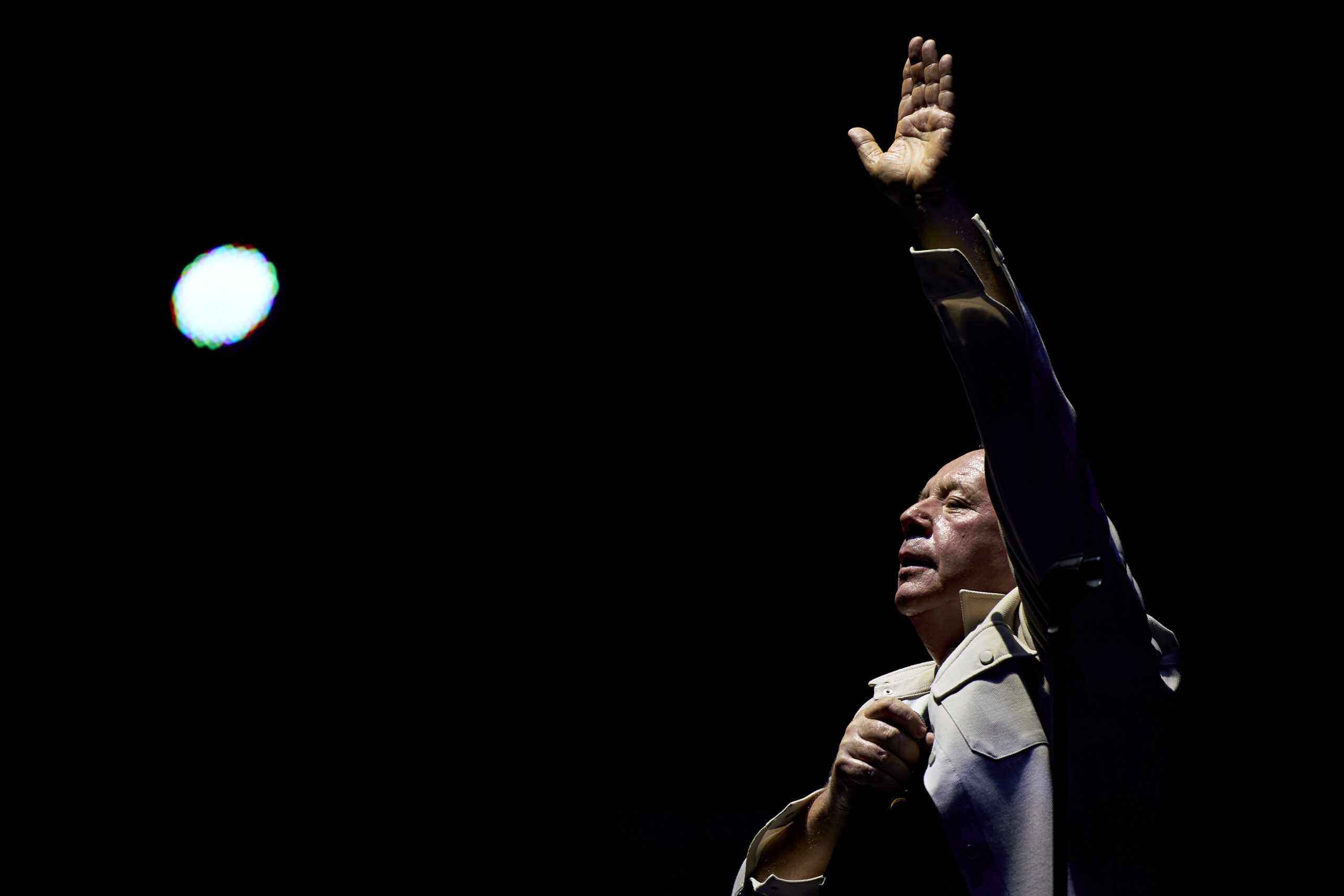
Jim Kerr slips on a pair of shades. It’s nighttime in Sicily, where he lives, but the glare of his screen is bright. The look — let’s assume it’s not intentional — enhances a sense of wistful contemplation as he thinks back a while to a time in Glasgow, where he grew up and where he and his childhood friend Charlie Burchill formed the band Simple Minds as teens.
He was in one room at home, he remembers, his dad in the next.
More from Spin:
- 5 Albums I Can’t Live Without: Jim Kerr of Simple Minds
- Peter Gabriel: Our 1986 Interview
- SPIN’s Best #LongReads of 2015
“He’s in the next room shouting at me, ‘You’re making me crazy with this music playing all the time!’” Kerr says.
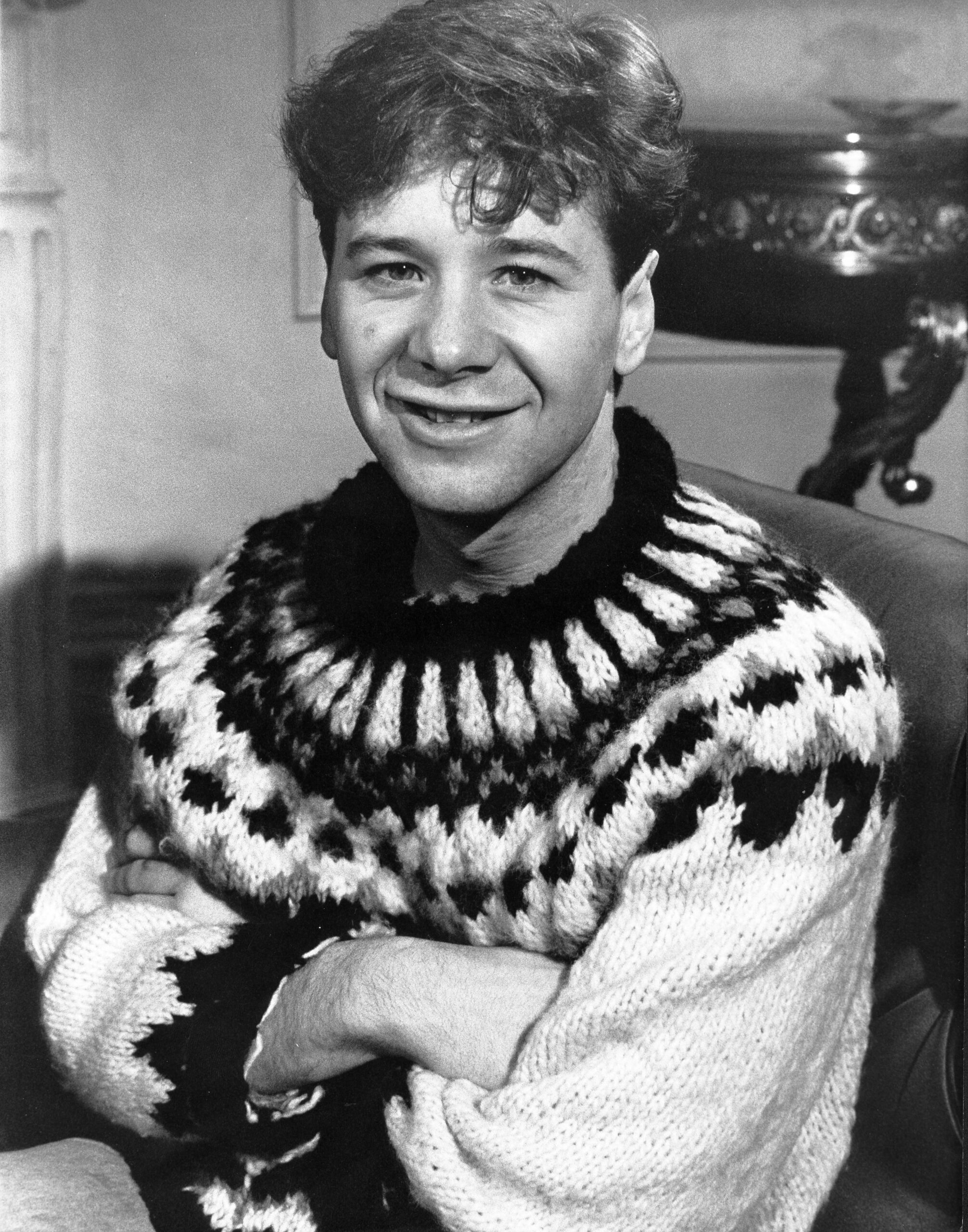
Except this wasn’t the 1970s. This was 2019, and Kerr had moved back to his hometown temporarily to be close to his father, James Sr., whose health was declining.
“I mean, it was like I was 14 again,” says Kerr, now 63, laughing through his gently rolling Scottish burr. “And I couldn’t say to him, ‘Shut up. I’m writing a song about you!’”
But this time he could say it, and he did. When he first got back to Glasgow, he was at loose ends, unsure of the needs — emotional and otherwise — of being there, just the two of them, as his mom had died years ago. But his father wouldn’t let him wallow.
“He was adamant,” Kerr says. “‘What are you doing hanging around and moping? Get back to work!’ So we went back to work.”
Burchill, who also lives in Sicily, joined him in Glasgow to work on new songs. “I’d write in the mornings and talk with [Dad] at night,” Kerr says. “And then I realized this song I was writing was about him.”
The song is “Vision Thing,” the opening track of Direction of the Heart, the new Simple Minds album (released October 21). It sets the tone for an album of reflections on where Kerr and Simple Minds are now — and how they got here.
“The first verse of the song is about me talking to him,” he says. “But we had this odd-couple thing going on for a while, and he would say, ‘Go up in the attic and get me this book.’ And one of those days I went up in the attic, and it was full of all this stuff that he and Mom had kept of us when the band was still starting, little cutouts from newspapers and things I hadn’t seen for the longest time, wasn’t interested in. But it felt like time to have a look again. And so that song, in the first verse it’s talking to him, but the second verse I’m addressing the younger me.”
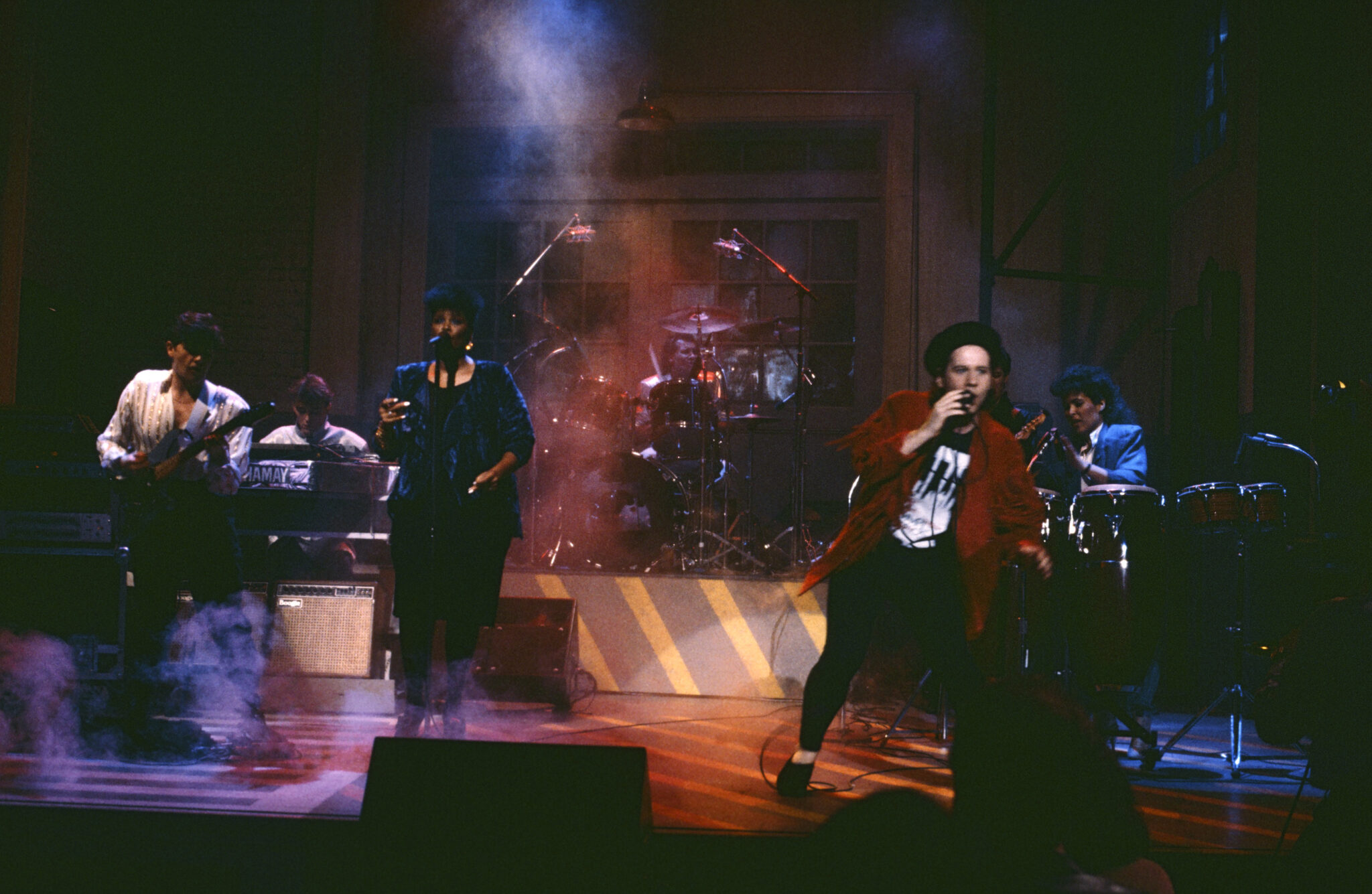
It is decidedly not a mopey song.
“It’s a celebration of life, really,” he says. “There’s a lot of joy in it. It’s a tribute to him. Charlie’s known him since he was eight years old. He was a bit of a guru to us, a bit of a street philosopher, Dad. It was Dad who gave us the first £100 to make our demo cassettes that I hitchhiked to London with. He maintained that he was never paid back, and he always said he wanted it with interest.”
Clear echoes of the past ring throughout the album, the glorious Simple Minds swirls of chiming guitars, lush synths and pulsating beats, paired with Kerr’s rich voice and light-in-the-darkness explorations of love and meaning on both personal and universal/spiritual scales. They’re in the aspirational dare of “First You Jump” (“then get wings”) and the grand themes of “Who Killed Truth” and “Human Traffic,” the latter lamenting our global toxicity, but leavened by a chipper melody and the guest voice of Sparks’ Russell Mael, a longtime hero of Kerr and Burchill.
There’s also another tribute: the powerful, album-closing cover of “The Walls Came Down,” California band The Call’s 1983, Old-Testament-allegorical MTV hit. That band’s leader, Michael Been, who died in 2010, was a close friend from when the two groups toured the U.S. back in the ‘80s. Simple Minds also recorded The Call’s “Let the Day Begin” on 2014’s Big Music.
These characteristics marked such ‘80s staples as “Promised You A Miracle,” “Alive and Kicking” and, of course, “Don’t You (Forget About Me),” the song from John Hughes’ The Breakfast Club that, though they didn’t write it, rocketed them to the top of global pop charts. They had five U.K. No. 1 albums, headlined around the world, were featured at Live Aid in Philadelphia and Mandela Day at London’s Wembley Stadium. Kerr was a top-rank rock star, with high-profile marriages to Chrissie Hynde in 1984 (they divorced in 1990) and model-actress Patsy Kensit in 1992 (divorced 1996).
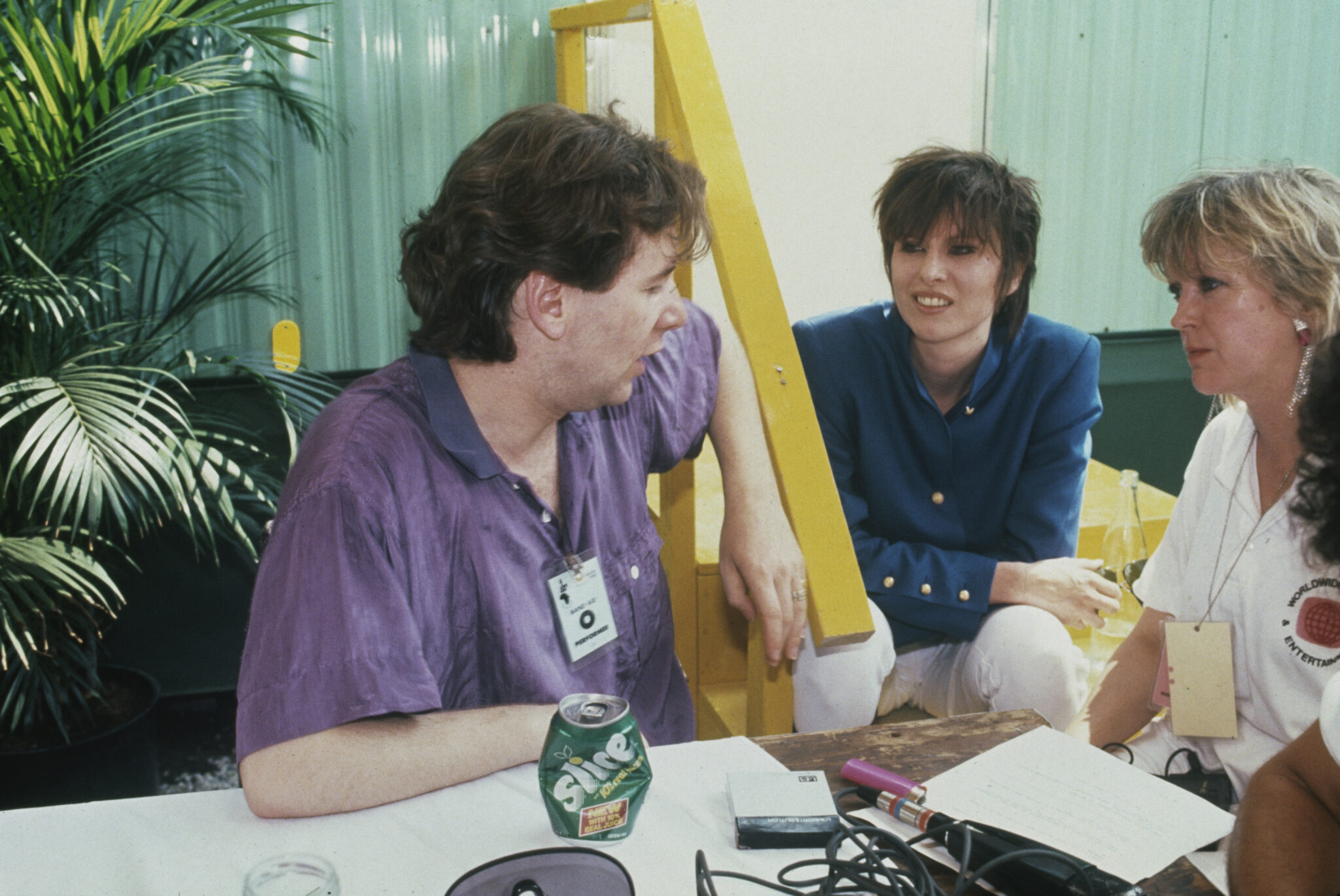
But Heart is neither consciously nostalgic nor consciously not. It’s simply Simple Minds. And while a core of the album is about Kerr the son, he’s a dad too, with two grown kids: a daughter, Yasmin, with Hynde and a son, also James, with Kensit, plus twin grandsons via Yasmin.
“I don’t know what they think of me,” he says. “But it must be cool to have Chrissie as your granny.” The true nostalgia here is personal, sentimental, embodied in one artifact from the era commemorated in the Glasgow attic: The youthfully energetic song “Act of Love,” dating from the earliest days of Simple Minds, makes its official recording debut now, nearly 45 years later.
“‘Act of Love’ was the very first song we played when we did our first gig in January 1978,” he says. “Walking on stage on a Monday night in January in a discotheque to the sound of our own feet, Charlie hitting those chords and me thinking, ‘This is it! We’re going the distance!’”
For about a year, it was the opening song of every gig. “When no one knows you from Adam, your first song better be an impact song; otherwise the pub’s gonna empty or the abuse is gonna start — especially in Glasgow, the not-patient!” he says. “So this was our song. But a year later, we had our album deal and so many ideas, and we would get bored easily, and it kind of fell down the pecking order and disappeared. But people we’d meet would say, ‘I saw you in Glasgow. What happened to that first song you played?’”
They added a new chorus, the new words again addressing his younger self, but otherwise it’s the same song: “Just the title itself. If ever there was a way, as corny as it sounds, to describe how we have done what we do and what’s made us do it, it really is a love of the work. Who would have thought that you begin a song, and then 45 years…”
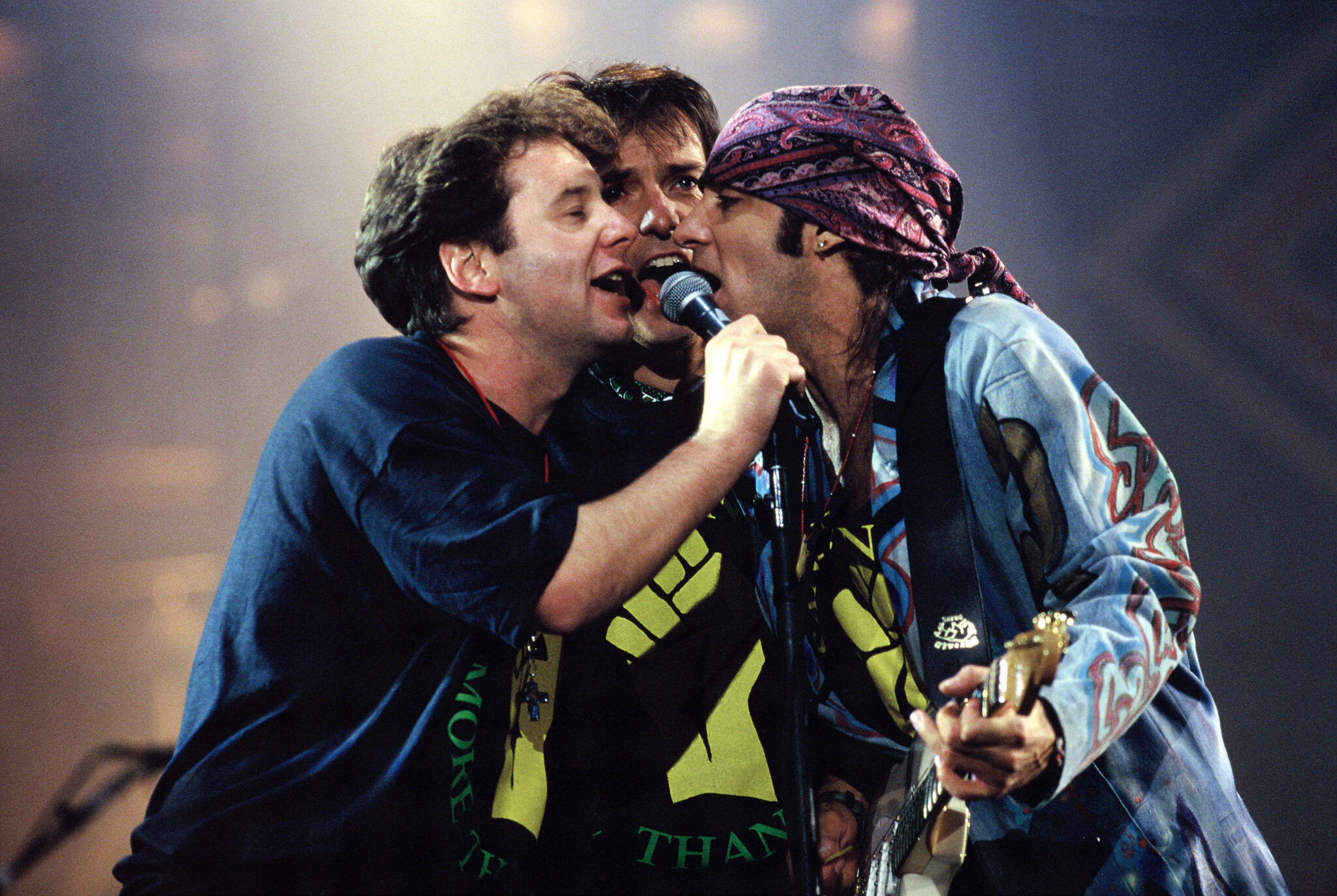
The emotions of the 2019 Glasgow stay remained with him as he returned to Sicily after his dad died. He’d been visiting there regularly since 1982 and planted roots some 20 years ago, buying land on a hill over the town of Taormina (with views of smoking volcano Mount Etna and the Ionian Sea) and building a boutique hotel, the Villa Angela. About three years ago, he officially took up residence in a place near the hotel, but soon after that, COVID shut everything down. Both setting and circumstances had a deep impact on the album’s evolution.
“The hotel played a part in the album, because obviously when the world came to a close, the hotels came to a close as well,” Kerr says. “And this little town in Sicily is all about tourism. So it got bad. But Charlie and I soon had a truck full of equipment come, and we ended up in one of the main rooms, setting up. That’s where we did quite a lot of the record. But the image of me and him in this empty hotel — we should have called the album The Shining! It started to feel a little bit like that.”
All work and… well, as far as he’s telling, no REDRUM.
“I remember creeping around the corridors at night, thinking, ‘Some of these rooms have got to still have peanuts in the minibars!’ We had a great time.”
Even this brought back the early days: “Funny enough, if you go back to when you’re 18 and 19, when Charlie and I got our first record deal and couldn’t believe we had money and advances to hire a rehearsal room, we would roll out of bed and, before [we’d] even had [our] coffee, plug in, and the music was happening. And it went on until [our] eyes closed.”
It wasn’t much different now at the hotel. “I’m not saying we were in there 24 hours, but there was nothing else to do,” he says. “There were no restaurants, no cafes, no pretty women walking in the street. There were no football games on the TV for the first few months. So Charlie and I were in this bubble, this hotel, just getting into it. And the level of commitment as a result of that has brought out benefits in the record, and it also gave us things to write about. There was time to really think.”
Once the songs were in shape, they relocated to a studio in Hamburg after plans to record in England fell through due to COVID restrictions. They were joined by longtime bassist Ged Grimes and guitarist Gordy Goudie, while drummer Cherisse Osei and singer Sarah Brown (prominently featured on the lilting, soaring “Solstice Kiss”) added their parts remotely from London.

One byproduct of the reflection involved with creating Heart is perspective — as profound as the view of Etna from his hotel. It was a slow, steady climb from Glasgow in the ‘70s; several years and several albums, experiments with noisier and/or atmospheric art-rock, before Simple Minds even approached, let alone reached, the peak.
“I don’t know if you’re ever ready for it, but it meant we earned it,” he says. “That’s for sure. And it meant you’re probably more prepared for it than if you had appeared overnight. When you’re in the backroads of Holland and Belgium and Denmark and playing to two men and a dog and all that, it doesn’t seem like it’s going anywhere. But you’re getting your act together, literally. And I think we benefited from that.”
That helped on the way up — and on the other side. “You really find something about yourself when you’re in the back of a bus driving to a club gig that’s not sold out and you drive past the stadium that you sold out eight years earlier. The first thing you find out is why you’re a raging alcoholic.”
To be clear, he’s not talking about himself with that hazard. “No, no!” he says. “I’m an aberration. I’m a Scotsman who’s never drank.”
But he continues: “You find out why you’re bitter,” he says. “Or you just say, ‘Look, this is what I wanted to do. I wanted to be an artist. I didn’t get in this to be rich and to be top of the pops. So I didn’t even dare to think that would happen. I wanted to get in this to get a life out of it. And you go up, you go down, you go sideways. You know, better artists than us have gone through the whole same thing. Better artists than us didn’t even get the success, never mind the downward. So I’ll use a corny phrase: You find out if you have the balls to go with it and not get bitter, not feel that the world owes you anything. But you go on.”
To see our running list of the top 100 greatest rock stars of all time, click here.
The post SPIN’s Best #LongReads of 2015 appeared first on SPIN.
